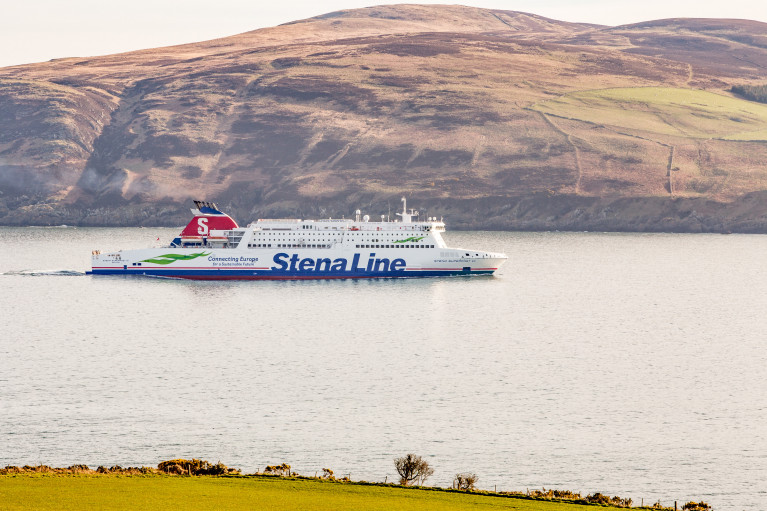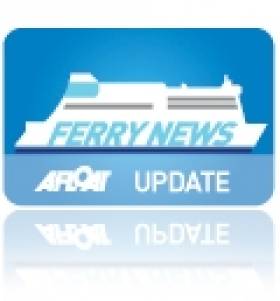Displaying items by tag: CairnryanBelfast
Ferry Sailings Operated by Stena Line Resume after Covid Cancellations
Ferry services run by Stena Line have resumed between Scotland and Northern Ireland, which were earlier disrupted due to a positive Covid-19 test among its crew.
One crew member on the Cairnryan to Larne ferry received a positive result from a lateral flow test, causing the company to take action on Wednesday.
It cancelled a number of sailings on Wednesday night and Thursday morning while the whole crew were tested.
No further cases were identified and sailings resumed with knock-on delays.
More from BBC News.
Superfast Sisterships for Stena's Northern Route
Stena will lease the ferries for a three year period from Tallink, the Baltic Sea based shipping group. (Click here for photo of Superfast VIII in ice-flow waters). The charter arrangement includes an option to extend for a further year.
The distance between the new ferry terminal named the 'Loch Ryan Port' at Old House Point (which is just north of Cairnryan) is approx. 8kms apart from Stranraer taking the coastal (A77) road along the Loch that leads onto to Glasgow. At Cairnryan, rivals P&O (Irish Sea) who along with predecessing operators have run services on the route to Larne for several decades.
With a speed of 27-knots, passage times on the new Stena Belfast-Cairnryan route will take 2 hours 15 minutes, this compares to the existing time of 2 hours 50 minutes from Stranraer by conventional ferry and 2 hours taken by the HSS fast-ferry.
As a consequence of Stena operating from Loch Ryan Port, passage times by the Superfast sisters will be reduced by 35 minutes as the Belfast terminal was also relocated in recent years. Though despite the relocated ferry terminals, the Superfast sisters scheduled 2 hours 15 minutes sailings from the new port will be slightly longer compared to the HSS Stena Voyager's 2 hour sailing time from Stranraer.
Also serving the Belfast Stranraer route are the conventional ferries, Stena Caledonia (formerly Sealink's St. David built at Harland & Wolff) and Stena Navigator, that served SeaFrance on Dover-Calais sailings as SeaFrance Manet. When the Superfast sisters replace the HSS Stena Explorer and the conventional ferries, perhaps there will be a new a role for the two vessels in replacing expensive to run fast-craft operated elsewhere.
In the meantime the Superfast pair will maintain running on Tallink's 26-hour Helsinki-Rostock until mid-August. The 2001 German will then undergo an extensive refit of passenger facilities and a new freight-only deck will be incorporated to cater for haulage operators increasing use of higher vehicles and double-deck freight units.
The 'Superfast' vessel naming theme derives from the original owners, Greek operator Superfast Ferries, which sold their Scandinavian operations to Tallink in 2006.

























































